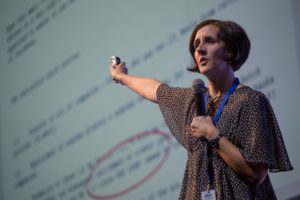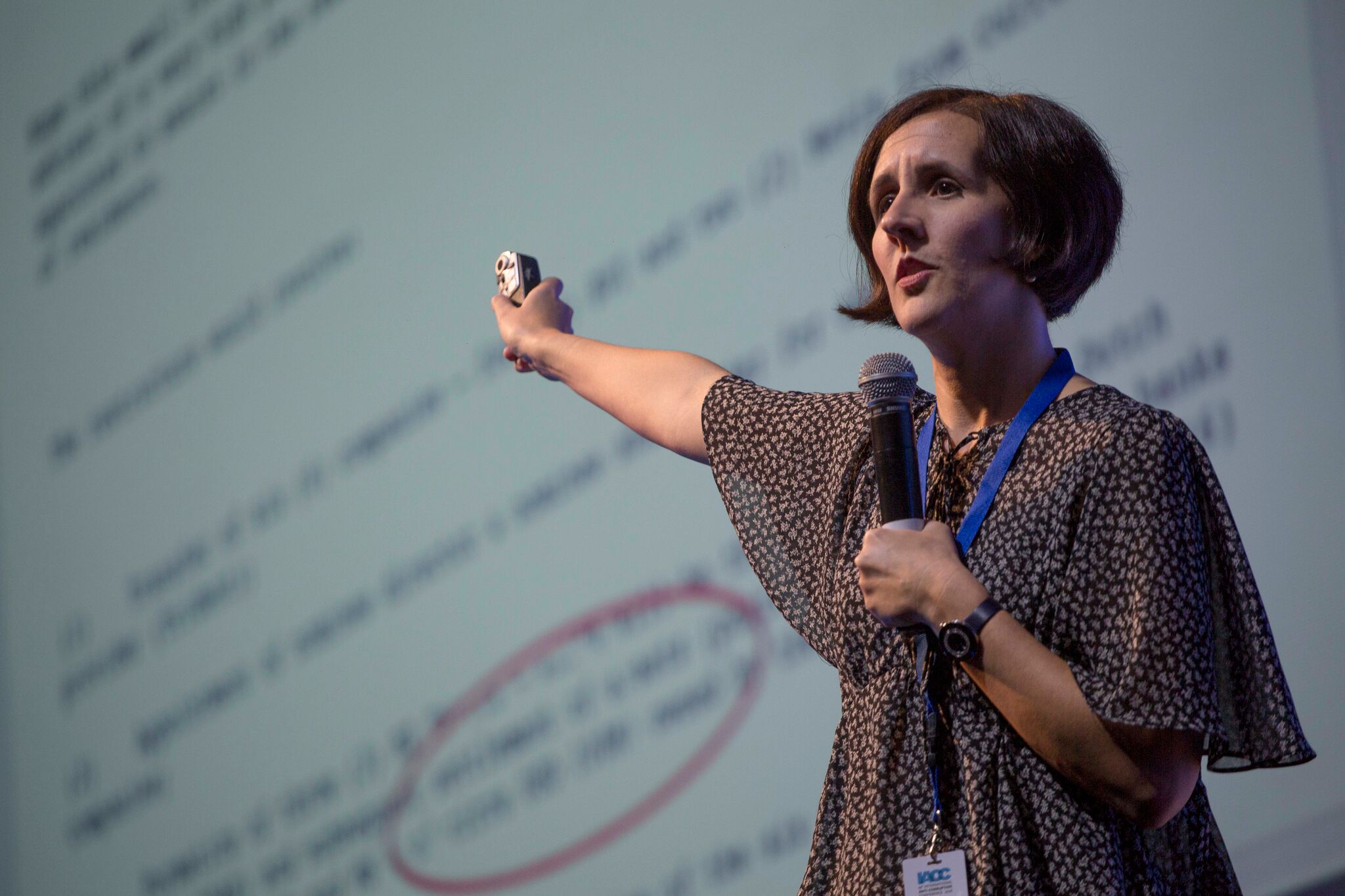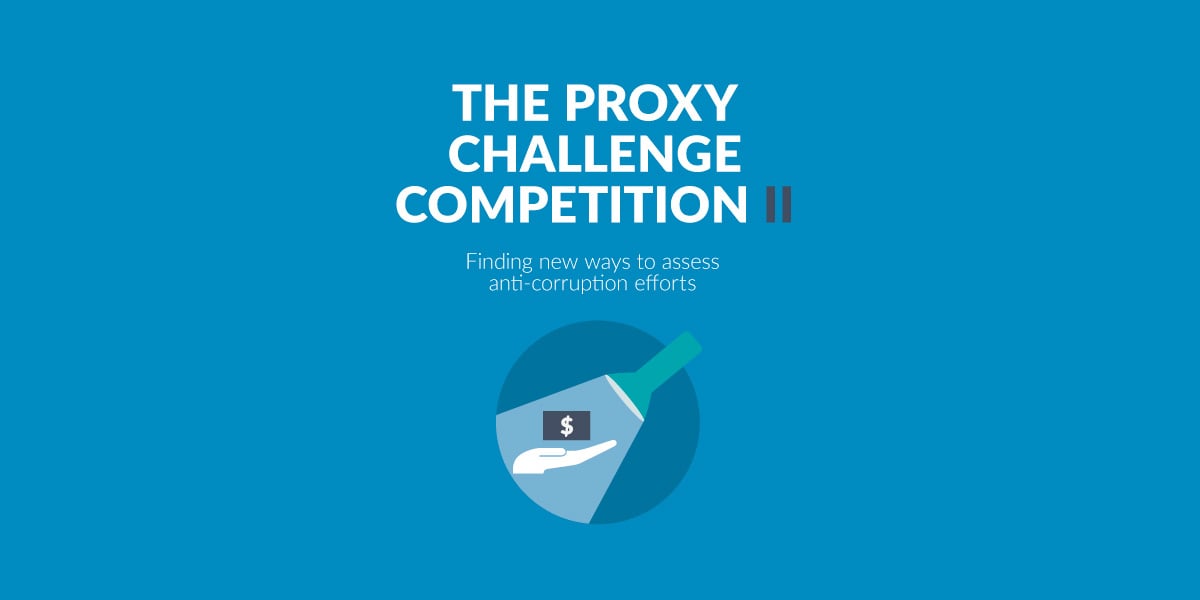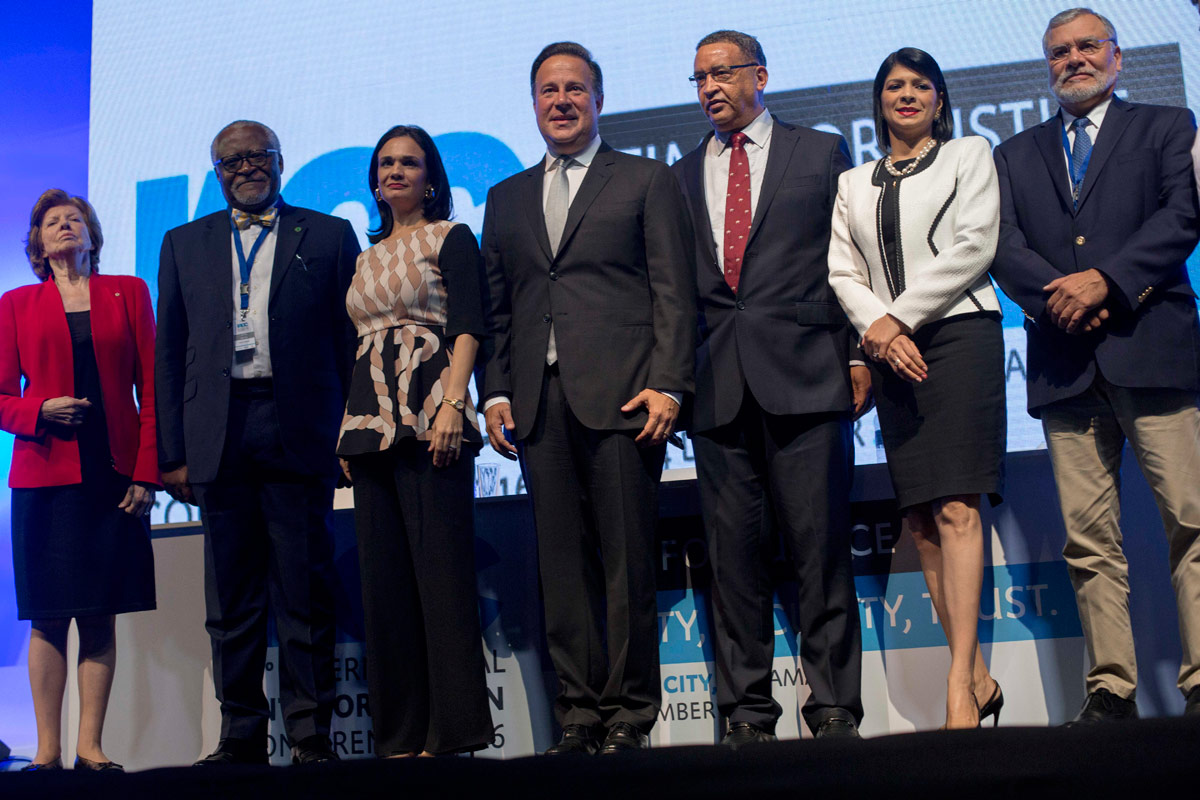
Marina Walker at IACC, Image by Mauro Pimentel
Nine months on from the biggest data leak in history, journalists involved in receiving and sifting through the Panama Papers gathered to reflect on their work at the 17th International Anti-Corruption Conference in Panama City, Panama.
Opening the afternoon discussion, Barbara Trionfi from the International Press Institute noted that the Panama Papers were “unprecedented in terms of the size of the leak” but also the level and scale of the cooperation among international journalists.
German journalist Frederik Obermaier from Süddeutsche Zeitung, who was the first journalist to receive the leaks, spoke about his shock at the absolute scale of the data – which came to 2.6 terabytes – “something I still can’t put in words.”
“This was not a story for one media outlet,” Obermaier said. “We decided we need colleagues, we need to team up, we need for transnational problems, like corruption, transnational solutions.”
They approached the International Consortium of Investigative Journalists (ICIJ), though Obermaier said he was initially quite anxious. “We were really, really afraid that they wouldn’t be interested.”
Eventually, 400 journalists from 18 countries came together to pour over the documents – mostly emails.
“We needed a new paradigm, a new way of working,” said Marina Walker, from the International Consortium of Investigative Journalists (ICIJ). The first problem though was technical.
“We are not trained to share our scoops with 400 journalists around the world.”
However, the benefits were obvious: sharing changes the potential impact from national to global.
Walker said while some people would rather work as “lone wolves”, the benefits to working in teams are clear: “We are talking about stories that are too big for one journalist or one media organisation to work in isolation,” she said. “We tell people we leave our ego behind, that is the only way, the only star is the story.”
It is still important to be careful, she said. “Every time you share it with another reporter the risk goes up,” Walker noted, though this is countered by increased protections.
“You become an easy target when you’re a lone wolf.”
The fallout from the release of the Panama Papers was significant. Reporters have received threats, retaliations, been sued, and have been harassed via social media.
Will these big data leaks continue? American investigative journalist Jake Bernstein said he’s emphatic that they will, meaning systems to aid journalists to cooperate globally are also going to be vital.
Walker also listed the impacts of the Panama Papers leaks, which included wiping out $135 billion of the value of nearly 400 publicly traded companies, leading to legal changes in multiple countries including New Zealand, Mongolia, Panama, and Taiwan, launching investigations into more than 6,500 taxpayers and companies, and recovering of tens of millions of dollars. Billions more are currently being traced.
Sally Hayden is an award-winning Irish journalist based in London. After nearly two years as the chief staff writer for Vice News UK she went freelance in May. She has worked for the Thomson Reuters Foundation, BBC, the Financial Times, the Irish Times, the Sunday Times, Magnum Photos and many others, and has reported from Nigeria, Lebanon, France, Germany, Northern Ireland, Rwanda, Burkina Faso, Malawi, Ethiopia, and various other countries.


